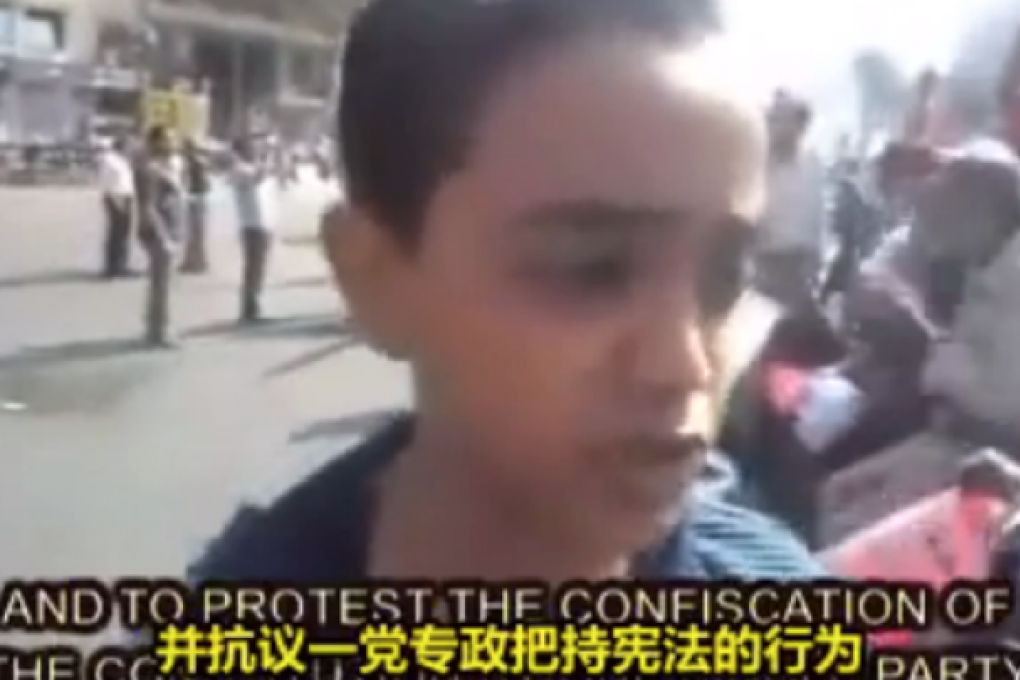Video: Egyptian boy talking politics becomes Chinese internet sensation
It was the boy's articulate political argument that struck a chord in China. "Where is the constitution that represents us?" he asked in Arabic.

An Egyptian boy has become an internet sensation in China after a video in which he made a surprisingly eloquent case against authoritarian rule went viral in his home country and worldwide at the weekend.
A version of the interview with the presumably 12-year-old boy appeared with Chinese subtitles on Chinese microblogs on Monday evening. It ranked as the third most popular microblog post overnight until Tuesday, before it was quietly taken down from the ranking.
"I am here today to […] protest the confiscation of the constitution by one single party," Ali Ahmed told El Wady News in the video.
He then condemns the religious influence on policy under then-president Mohammed Mursi, who was deposed last week and has since been placed under house arrest. Ahmed also spoke against the subordinate role of women in politics.
But it was the boy's articulate political argument that struck a chord in China. "Where is the constitution that represents us?" he asked in Arabic.